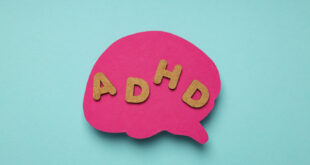Where did I put my keys? Who is that woman again? When did I last go on holidays? What was I doing?
Does this sound familiar?
You may be experiencing brain fog.
Brain fog is when we feel like we can’t focus, we forget things, and we might wind up confused. Brain fog is not normal, and can be due to several different reasons. Try these tips to reduce brain fog, and if symptoms persist, it’s time to check in with your doctor.
Tip 1: Get the perfect amount of sleep
The quality of your sleep directly affects your brain – and resulting brain fog – if you are not getting a good rest. Being tired can affect your memory, cognition, and learning processes.
How to get the perfect amount of sleep?
- Try to go to bed at the same time every night
- Get at least 8 hours of sleep every night
- Use a sleep app to wake you at the right time in your sleep cycle
- Have a 20-40 minute nap in the afternoon if you are tired
Tip 2: Understand that caffeine is a drug
While it can be tempting to reach for a coffee when you’re feeling a mid-afternoon slump, you should realise first that caffeine is a drug – one that makes you temporarily more alert. If you are feeling brain fog it can be tempting to supplement with caffeine. However, as it is a drug, know that after your boost, you’re going to crash yet again, which often makes you top up that coffee cup. This can really interrupt your sleep as well as natural body processes.
Instead of coffee, or other caffeinated products, look to lifestyle changes and reduce your caffeine intake now.
Tip 3: Look into your diet
People with allergies or dietary intolerances can find themselves beset by brain fog if they eat the foods that they are sensitive to. Allergies and intolerance can come on at any stage in life, so just because when you were younger you had no issues, doesn’t mean that you’re immune.
The best way to determine if food (and drink) is causing your brain fog is by keeping a food diary. Take note of what you are eating, and when, along with how you are feeling, and what time brain fog hits. Try eliminating from your diet common culprits such as dairy, eggs, food additives, vinegar, red wine, cured meats, cheese, fermented veggies and fish, gluten, strawberries, citrus, and tomatoes.
Simple carbohydrates, such as white bread and sugar can also raise you up temporarily and then make you crash, causing brain fog. Choose complex carbohydrates instead.
 Tip 4: Assess your medications
Tip 4: Assess your medications
Did you know that certain prescription and non-prescription medicines, as well as natural supplements can add to a foggy brain? Check this list and with your doctor to find out whether your medicine is making you foggy.
- Antibiotics, such as acyclovir, ciprofloxacin and metronidazole
- Painkillers, such as codeine, and pentazocine
- Antidepressants, such as amitriptyline
- Cough medicines, such as dextromethorphan
- Antihistamines, such as dimenhydrinate and diphenhydramine
- Blood pressure meds, such as clonidine, and metoprolol
- And more…
You can also cut down on alcohol, get more exercise, and choose brain exercise activities, such as Scrabble, or memory apps, for even more of a brain boost.









Join the Discussion
Type out your comment here:
You must be logged in to post a comment.